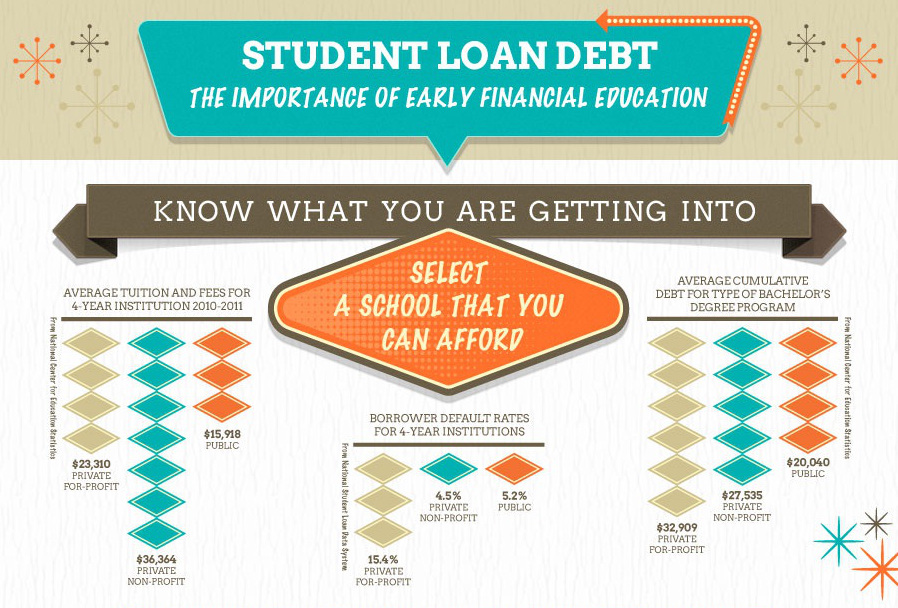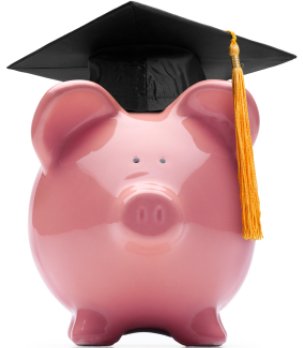What you Need to Know about Consolidating Student Loans
Chances are if you’ve taken out student loans in order to finance your education you have been, or at least will be, receiving calls and offers in the mail to consolidate your student loans. There are actually numerous advantages to consolidating your student loans. In addition to gaining a fixed interest rate you can also potentially lower your monthly payments. In the event that you begin to experience financial difficulties, you may also be able to take advantage of flexible payment options with a consolidated student loan.
Unlike other types of debt consolidation programs a student loan consolidation gives you the opportunity to combine your loans into one package with more attractive terms. You also don’t have to worry about being turned down because of a bad credit score and the interest on the loan may be tax deductible. In addition, in the event of your death your survivors won’t have to worry about paying it back because the debt will be discharged.
If you have a variable interest rate student loan, consolidating the loan can also help you to lock in a lower rate before the rates increase the next year. Over the length of the loan, this one step can actually help to save you a tremendous amount of money.
Of course, in addition to the advantages there are also some disadvantages of which you should be aware. One of the most important is that if you end up lowering your monthly payment you are actually extending the length of the loan and that means you’ll pay more over the life of the loan due to increased interest. You can still take advantage of the other benefits of a student loan consolidation without this disadvantage; however. Just don’t lower your payments unless it is really necessary.
When considering lenders for a student loan consolidation it is important that you always compare the terms of each offer made to you. Consider the interest rate and length of the repayment terms to be sure you are getting the best deal possible.
If you have a mix of both federal and private student loans, you should also be aware that while both types of loans are available to be consolidated it may not be a good idea to consolidate your federal loans and private loans together in the same package. There are stipulations on private loans that are not required on federal student loans, such as no deferments, no tax deductions on the interest, no forgiveness of the debt in the event of death and no forgiveness of the loan for working in certain fields. In the event of a mix of private and federal, it’s usually best to go ahead and consolidate the private loans separately from the federal loans so that you can retain those advantages for the federal loans.
By understanding all of the factors related to student loan consolidation you will be in a better position to make a more informed decision regarding your finances.
Unlike other types of debt consolidation programs a student loan consolidation gives you the opportunity to combine your loans into one package with more attractive terms. You also don’t have to worry about being turned down because of a bad credit score and the interest on the loan may be tax deductible. In addition, in the event of your death your survivors won’t have to worry about paying it back because the debt will be discharged.
If you have a variable interest rate student loan, consolidating the loan can also help you to lock in a lower rate before the rates increase the next year. Over the length of the loan, this one step can actually help to save you a tremendous amount of money.
Of course, in addition to the advantages there are also some disadvantages of which you should be aware. One of the most important is that if you end up lowering your monthly payment you are actually extending the length of the loan and that means you’ll pay more over the life of the loan due to increased interest. You can still take advantage of the other benefits of a student loan consolidation without this disadvantage; however. Just don’t lower your payments unless it is really necessary.
When considering lenders for a student loan consolidation it is important that you always compare the terms of each offer made to you. Consider the interest rate and length of the repayment terms to be sure you are getting the best deal possible.
If you have a mix of both federal and private student loans, you should also be aware that while both types of loans are available to be consolidated it may not be a good idea to consolidate your federal loans and private loans together in the same package. There are stipulations on private loans that are not required on federal student loans, such as no deferments, no tax deductions on the interest, no forgiveness of the debt in the event of death and no forgiveness of the loan for working in certain fields. In the event of a mix of private and federal, it’s usually best to go ahead and consolidate the private loans separately from the federal loans so that you can retain those advantages for the federal loans.
By understanding all of the factors related to student loan consolidation you will be in a better position to make a more informed decision regarding your finances.








